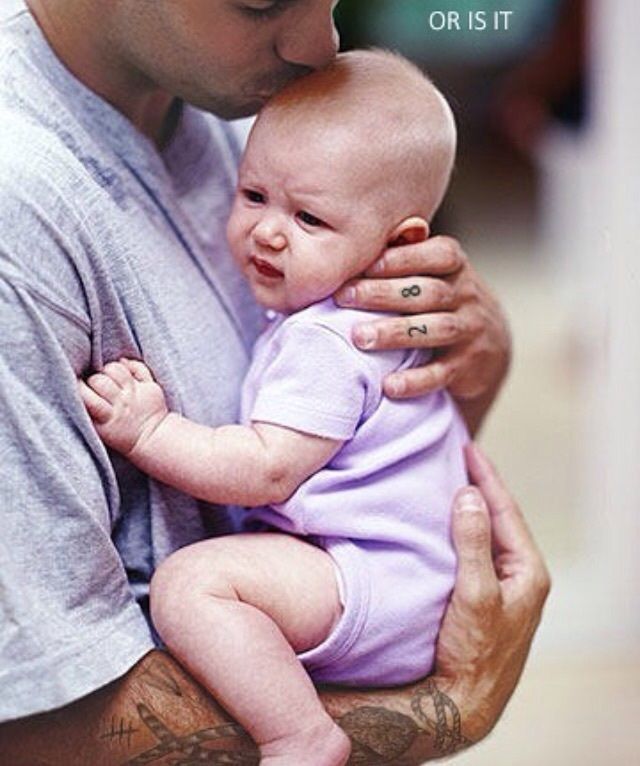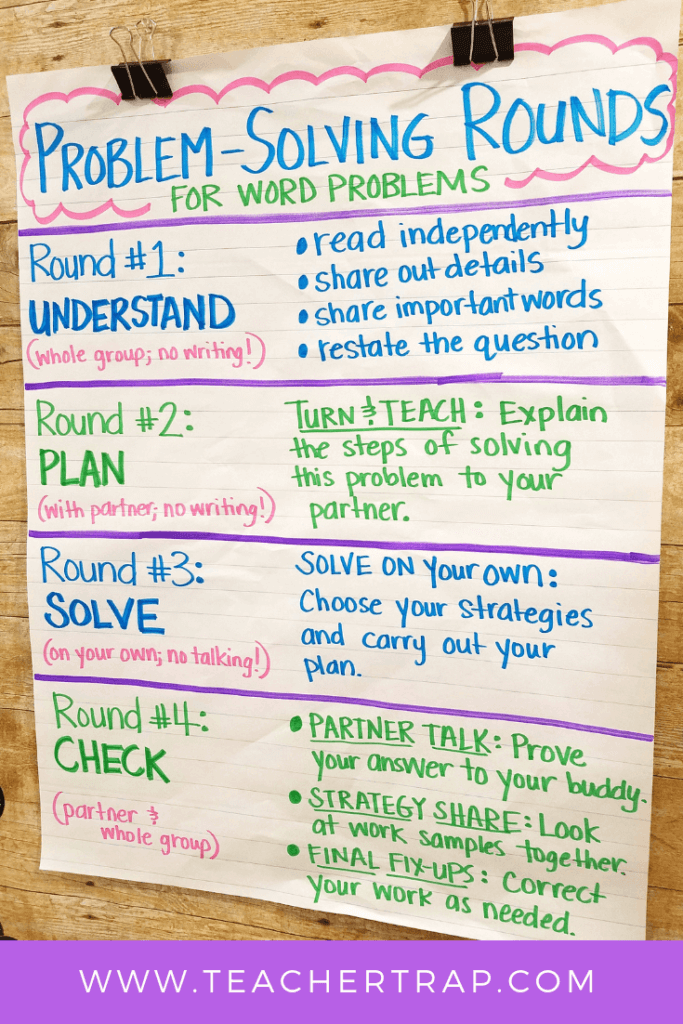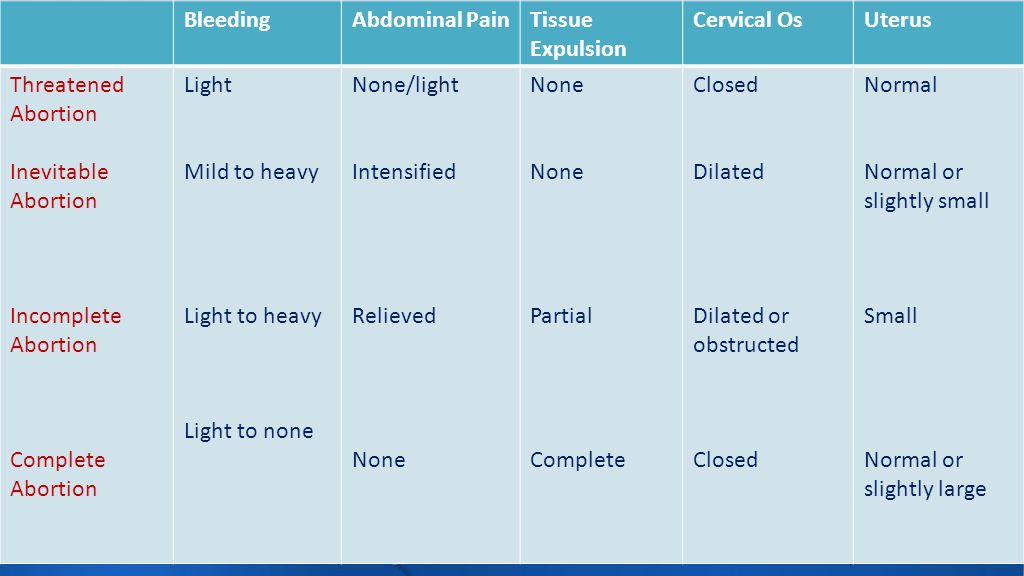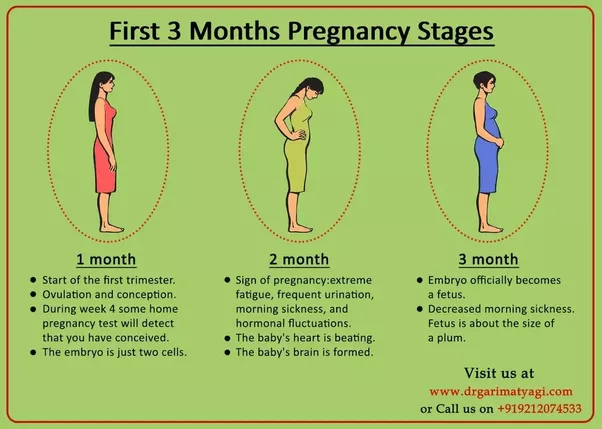Not bonding with baby
Bonding With Your Newborn: What to Know If You Don’t Feel Connected Right Away
It may seem like all parents feel an instant, deep connection to their baby. That’s how it goes in the movies, and maybe you’ve heard the same from friends and family. But this is not how it works for everyone.
Many new parents need more time to bond. Bonding is when you develop feelings of unconditional love for your newborn. Often, bonding happens gradually over the baby’s first year of life. So if you don’t feel these strong feelings of closeness in the first days or weeks after birth, that’s normal.
Still, there are some steps you can take to help you bond with your newborn. There also are some things that can slow the process. But given time—and with continued, close contact with your baby—it will happen.
Here’s what to understand if you have concerns about bonding with your newborn.
Skin-to-skin contact and breastfeeding are helpful.
Bonding often begins with skin-to-skin contact in the first hour after delivery. This is when delivery room staff place your newborn baby down on your bare chest.
As you lie together, you and your baby feel, hear, and smell each other for the first time. You gaze into each other’s eyes. This contact signals your body to start making milk, and you may start to breastfeed. All of these things help you bond.
But don’t worry if something prevents you from having skin-to-skin contact or from breastfeeding right away—or at all. It’s close contact and attention to your baby over time that create bonding, not just in the minutes right after birth. Bonding is not a once-in-a-lifetime event.
The “baby blues” can affect bonding.
Many new mothers get the baby blues in the days just after birth. These are feelings of anxiety, distress, or sadness that can come and go. They may make you feel angry. You may wonder if you’ll be able to care for your child.
The baby blues usually go away in 2 to 3 weeks. Then you may start to feel more bonded with your child.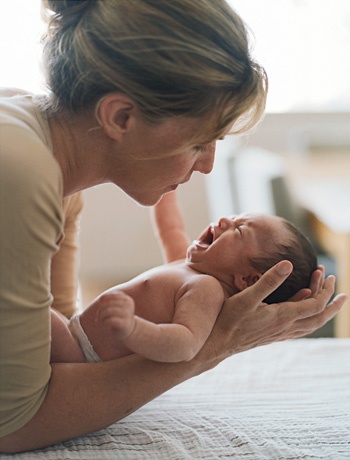
It’s important to get treatment if you have postpartum depression.
Postpartum depression is different from the baby blues. It’s more intense and can interfere with bonding. It also can cause other serious problems. Unlike the baby blues, depression does not go away on its own. It can become severe and should be treated.
With postpartum depression, you may
-
have strong feelings of sadness or despair
-
feel anxious or worried for no clear reason
-
feel scared or panicky
-
cry a lot
-
lose interest in things you used to enjoy
-
feel so unhappy that you can’t sleep, eat well, or do daily tasks
-
think about hurting yourself or your baby
Anxiety often happens along with depression. If you or a family member think you have postpartum depression or anxiety, talk with your ob-gyn as soon as possible.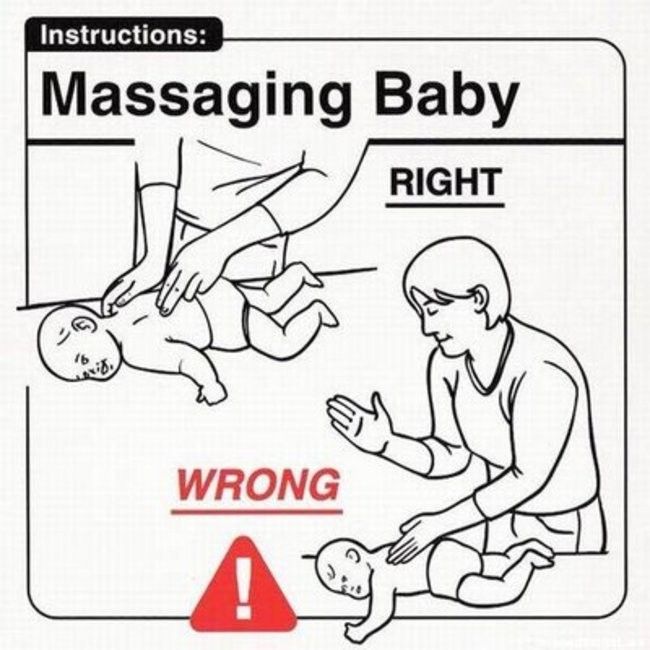 There are treatment options that can help you feel better. With treatment, you can become healthier and more able to bond with your baby.
There are treatment options that can help you feel better. With treatment, you can become healthier and more able to bond with your baby.
A lack of support and time for self-care make bonding harder.
Many new mothers aren’t able to get enough sleep. Some are still learning how to care for their child. They may worry their baby is not feeding well or gaining enough weight. And often, new moms put their own needs at the bottom of their to-do list.
Being tired, stressed, and not having time for yourself make bonding harder. If you feel overwhelmed, you may need more support. Friends, family, and health care professionals all can be sources of support. Community resources, such as food and housing aid, support groups, and parenting classes, also can help relieve stress.
[5 Reasons Why You Need a Postpartum Support Network]
Your ob-gyn and health care team can help answer questions about feeding and make sure you and your baby are healthy. Your baby’s doctor also can answer questions.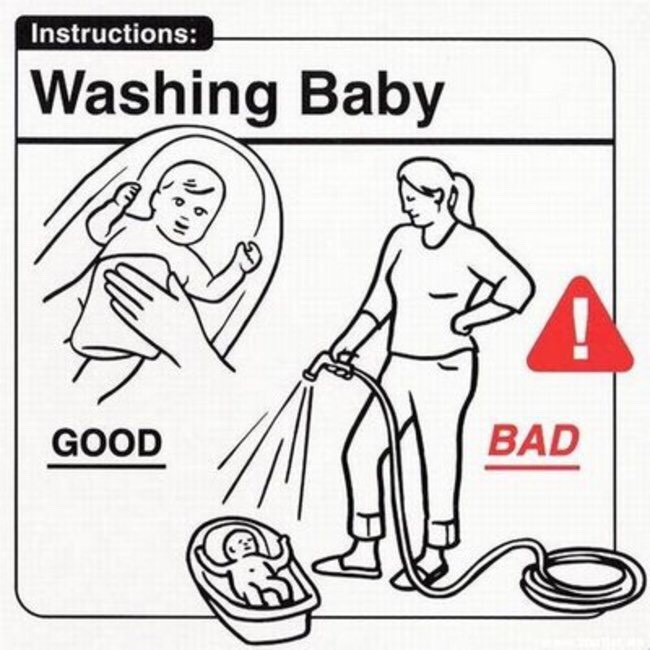 They can connect you with other resources, such as lactation counselors, if you want to breastfeed and you’re struggling.
They can connect you with other resources, such as lactation counselors, if you want to breastfeed and you’re struggling.
You also should have breaks from caring for your baby to relax and do things you enjoy. When your own emotional needs are met, you will find it easier to bond with and care for your child. Ask your family or close friends for more help. Talk with your ob-gyn or your baby’s doctor if you need help finding extra support resources.
You can strengthen your bond with your child with lots of touch, talk, and care.
Talk to your baby. Touch and stroke your baby’s skin, and spend time gazing into your baby’s eyes. Pick your baby up when they cry, and rock and soothe your baby. This kind of contact will help your bond grow. Remember, you can’t spoil a newborn baby.
You may do these things and still not feel as connected to your baby as you think you should. Don’t feel guilty or ashamed. With regular attention to your baby—and enough support and time for self-care—the bond will form. And in the meantime, your ob-gyn and your baby’s doctor are there to answer questions.
And in the meantime, your ob-gyn and your baby’s doctor are there to answer questions.
Published: January 2022
Last reviewed: January 2022
Copyright 2022 by the American College of Obstetricians and Gynecologists. All rights reserved. Read copyright and permissions information.
This information is designed as an educational aid for the public. It offers current information and opinions related to women's health. It is not intended as a statement of the standard of care. It does not explain all of the proper treatments or methods of care. It is not a substitute for the advice of a physician. Read ACOG’s complete disclaimer.
When and How It Happens
Written by Stephanie Watson
In this Article
- Why Do Parents Bond With Their Baby?
- How Does Parent-Baby Bonding Happen?
- Why Am I Not Bonding With My Baby?
- Are There Tips for Bonding With My Baby?
Bonding refers to the special attachment that forms between a mother and father and their new baby.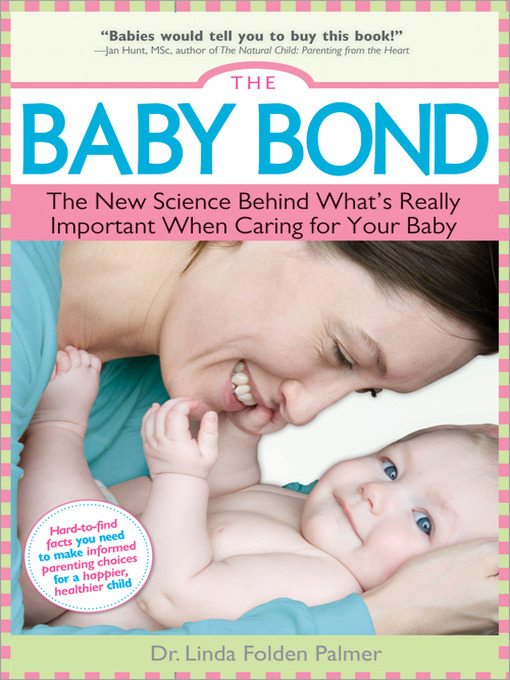 That bond is what sends parents rushing into their newborn's room in the middle of the night at the slightest whimper. It's also what makes parents want to instinctively care for and nurture their child.
That bond is what sends parents rushing into their newborn's room in the middle of the night at the slightest whimper. It's also what makes parents want to instinctively care for and nurture their child.
Sometimes, the bond is immediate -- parents fall in love the instant they set eyes on their little "bundle of joy." Other times, bonding with the baby takes longer. Studies have found that about 20% of new moms and dads feel no real emotional attachment to their newborn in the hours after delivery. Sometimes, it takes weeks or even months to feel that attachment. If you haven't begun bonding with your baby, don't feel anxious or guilty -- it should come with time.
Why Do Parents Bond With Their Baby?
Bonding is an important human instinct that gives babies a sense of security and self-esteem. Bonding also helps parents feel connected to their newest family member. It begins to happen even before the baby is born -- when you feel the first little flutters in your belly or see your baby kick on the ultrasound screen. Your baby also starts getting to know you in the womb through the sound of your voice.
Your baby also starts getting to know you in the womb through the sound of your voice.
How Does Parent-Baby Bonding Happen?
Bonding happens in many ways. When you look at your newborn, touch their skin, feed them, and care for them, you're bonding. Rocking your baby to sleep or stroking their back can establish your new relationship and make them feel more comfortable. When you gaze at your newborn, they will look back at you. In mothers who are breastfeeding, baby's cries will stimulate the let-down of milk.
Why Am I Not Bonding With My Baby?
Although bonding can be immediate for some people, others stare at the tiny, bawling creature they have just brought home from the hospital and wonder, "Who is this person?" Don't feel guilty if you aren't bonding with your baby right from the start. Remember that the process sometimes takes time. As you care for your new baby, you may find that your attachment grows. It may not be until the first time your baby shoots you a toothless grin that you suddenly realize you have bonded.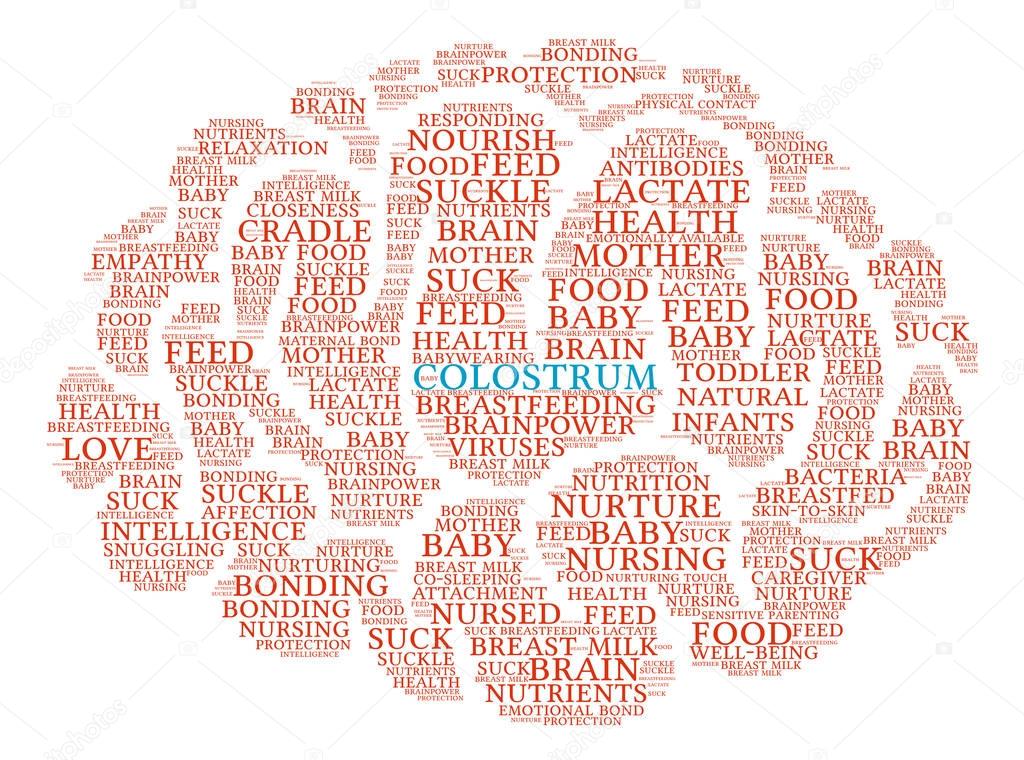
Bonding can be especially difficult if you had a C-section or couldn't see your baby right after the birth. It can also be difficult if your baby was premature and had to spend time in the neonatal intensive care unit (NICU), or if you adopted the child. It may take longer to bond in these instances, but it eventually should happen.
Some mothers develop postpartum depression, which prevents them from completely bonding with their baby. The pain and exhaustion from childbirth -- especially from a difficult delivery -- can also get in the way of the bonding process.
Sometimes, a mother's or father's situation can affect their relationship with the new baby. Any of the following can interfere with your efforts at bonding:
- A childhood that lacked a positive parental role model
- A history of depression or mental illness
- A past pregnancy loss or loss of a child
- Lack of a social network
- Life stresses such as a difficult job, unemployment, or other financial troubles
- Marital problems or abuse
Are There Tips for Bonding With My Baby?
Here are some suggestions that will make it easier to bond with your baby:
- Ask to room-in with your baby at the hospital.
 Sleeping in the same room will give you more time to get to know one another.
Sleeping in the same room will give you more time to get to know one another. - If your baby is premature, ask the hospital staff if you can touch and hold them. Just talking to your baby can help the two of you bond. Visit the NICU often to see your baby.
- Once you get home, spend as much time as possible with your baby by wearing them in a sling or carrier, rocking them on your lap, or singing them a song. Your voice and touch can be very comforting.
- Try giving your baby a gentle massage. Research has found that massage can not only improve the relationship between parent and baby, but it also can relieve stress in premature infants and ease postpartum depression in the mother. To learn how to massage your baby the right way, get a video, read a book, or take a class at a local hospital.
- Try making skin-to-skin contact with your newborn. This practice, called "kangaroo care," is often used in premature babies, but studies are finding that it's also calming to babies born full-term.
 It not only helps with bonding, but it also can improve your baby's ability to breastfeed.
It not only helps with bonding, but it also can improve your baby's ability to breastfeed.
Dads sometimes have more difficulty bonding with their new baby, especially because they miss out on the direct contact of breastfeeding. Here are some ways to enhance the father-baby bonding experience:
- Try to begin bonding with your baby before they are born. Put your hand on your partner's belly to feel the baby kick, go with them to the doctor for prenatal visits, and start thinking about the kind of father you want to be.
- Be in the delivery room during the baby's birth and take part in the delivery as much as possible.
- Help out with the baby's care: take over a few late-night feedings, give the baby a bath, change diapers, or sing the baby to sleep.
- Walk with the baby in a carrier close to your body.
If a few months have passed and you're worried that you still haven't bonded with your baby, talk to your pediatrician. They can determine whether a psychological or health issue may be the cause of the problem.
"We don't have to dedicate our lives only to children"
This is from the latest issue of the Forbes Woman app, which will go on sale May 19th.
Lyudmila Petranovskaya – educational psychologist, author of the books Minus One? Plus one!”, “Child of two families”, “Secret support. Attachment in the life of a child”, “If it is difficult with a child”. She is the founder and head of the Institute for the Development of Family Arrangement, under which there is a School of Adoptive Parents. Since 2012, the training of adoptive parents in our country has been mandatory. Over the three years of its work, more than 400 people have graduated from the SPR according to the method of Lyudmila Petranovskaya, more than 70 children are growing up in their families.
— You can't argue with the fact that a happy mother is better for a child than an unhappy one. And if a woman likes to work, then the child is better off. Do you agree?
And if a woman likes to work, then the child is better off. Do you agree?
— I agree, because a mother is no less valuable person than a child. A mother is not a means for raising a child. Both the child and the mother have their rights. It's perfectly normal when you leave, but at the same time tell the child: “You're upset that I'm leaving. I understand that you will be bored. I will miss you too. We will meet in the evening - and I will be with you. Well, if you say to a little man, “Why are you crying again? Do you really want us to be left without money, ”this is already called non-fulfillment of parental responsibilities. Fulfillment of parental responsibilities does not consist in satisfying all the desires of the child always. They consist in being attentive to the feelings of the child, helping him adapt to the reality that exists, but which does not always correspond to his desires. Our children have the right to be upset if they don't like something.
- If a woman made a career and then became a mother, when should she return to work? What is the best time for a child to have their mother around?
— I don't think there are any objective deadlines. Nature has laid down a period when a child especially needs a mother - these are the first months of his life, the period of breastfeeding. So not only the child, but also the mother is calmer. It must be admitted that women also usually experience severe stress if they have to part with a child in the first weeks or months of his life. And, in fact, mother often at this time is not happy with either work or entertainment.
It is a great achievement that the Internet and mobile communication allow a modern woman not to make a painful choice between work and a child. You can find more flexible options - freelance, part-time, and work from home.
About attachment
— Thanks to your books, we learned about attachment as a basic thing in human life. And how to form this feeling in a child if a woman needs to work hard and, accordingly, be absent from home? Especially if we are talking about a foster child who was initially deprived.
And how to form this feeling in a child if a woman needs to work hard and, accordingly, be absent from home? Especially if we are talking about a foster child who was initially deprived.
- This problem was common in Soviet times. When a child was sent to a nursery at the age of two months, in fact, he received the same deprivation. Families that allow themselves not to send their child to a nursery were the exception rather than the rule. Let it not be total deprivation, but the Soviet child got his mother, exhausted by the work shift at the factory and a rather difficult life. It is no coincidence that we still see the consequences of deprivation in the older and middle generations.
- How do they express themselves?
— A person, already an adult, has no contact with his own feelings, he has no contact with his body, with his parents, with his needs, and even with his grown children.
— In order not to repeat the Soviet experience, what is important to consider for a modern working woman?
— It's one thing for a mother to make frequent phone calls, go to meetings once a week, or end up breastfeeding her baby during a break from a business event. And quite another - leaves the child on the replacement nannies. If a woman does not feel motherhood is the sphere of her self-realization and understands that she does not want to take care of the child a lot, it makes sense to look for a permanent substitute person: dad, grandmother or permanent nanny.
But in this case, the mother will have to agree that the nanny, father, or grandmother will become the child's main attachment. In general, for many years the propertied classes lived like this, and the mother actually began to take care of the child at his more adult age. So, for example, we all know the name of Pushkin's nanny, but we don't know what his mother's name was, right? If the mother is satisfied with this alignment, then everything is in order.
- That is, attachment problems begin when the mother cannot or does not want to take care of the child and does not transfer this responsibility to anyone?
— Yes, such a mother first hires a nanny, then changes her, because the child becomes attached to her, and the mother becomes jealous. Very often, a nanny is fired with the wording: "Applies to the role of a mother." But at the same time, when a child is sick, when he has a temperature, teeth are cut, he is sick or needs to be taken to the hospital, a nanny is still with the child. And at the same time, he should love only his mother. Sorry, but this way of attachment does not work. The child becomes attached to the adult who is next to him in the most difficult moments. And it is better to cherish such a nanny as the apple of an eye and pray that she does not leave you.
quote_block node/285815- A business woman is usually good at distributing and delegating responsibilities. And what in the upbringing of a child can and cannot be delegated?
And what in the upbringing of a child can and cannot be delegated?
- If you want to be your child's main attraction, you can still go to work and make your own career. A visiting nanny can walk, play, feed a child, but his basic needs - when he is sick or at bedtime, when the child is as defenseless as possible - must be met by his mother. If you understand that you do not want to do this and cannot, agree with the fact that you will not be the main attachment of the child. This is how you help your child.
- Women who don't want to ruin their careers often justify leaving the office early by saying that they don't want to look uninteresting in the eyes of their own child when he grows up.
— To be honest, there are not many careers where you can't leave the office for a year or two. Especially if we are talking about a truly successful woman, a sought-after professional who has already made a name for herself and a position in business. And even more so when we say that many have children not at the age of 25, but much later, when a career is formed. I think by the age of 35 you can already have a workplace where you will not be forgotten in a couple of years. In addition, no one takes away the opportunity to work as a consultant or part-time freelancer. And starting from the age of three, the child can already afford full employment.
And even more so when we say that many have children not at the age of 25, but much later, when a career is formed. I think by the age of 35 you can already have a workplace where you will not be forgotten in a couple of years. In addition, no one takes away the opportunity to work as a consultant or part-time freelancer. And starting from the age of three, the child can already afford full employment.
— Parents often justify their employment by the need to earn money for the best things for the child — the best (and, accordingly, expensive) kindergarten, school, courses, toys. How to include material values in education?
- Most often, this grows out of the childhood of the parents themselves, when they themselves were deprived of much. It is important to ask an adult: “Whose need is this - my child or my own from childhood?”.
— What about small gifts from mom and dad after returning late from work or a business trip, for example?
— There are children for whom gifts are important. This is about the fact that mom and dad remember and love them. Gifts in and of themselves are not a crime. But if, instead of my company, I offer a child a gift and at the same time I expect him not to want gifts, but me, this is already somewhat strange. The child wants someone who gives him strength and the feeling that he is loved.
This is about the fact that mom and dad remember and love them. Gifts in and of themselves are not a crime. But if, instead of my company, I offer a child a gift and at the same time I expect him not to want gifts, but me, this is already somewhat strange. The child wants someone who gives him strength and the feeling that he is loved.
— With your extensive experience of communicating with different parents, do you see the difference in children with mothers at home and mothers working?
— The difference does not depend on the presence or absence of the mother at home. It is not uncommon for a child to have all the signs of deprivation in the presence of excellent housing conditions and a non-working mother, that is, in the presence of an emotional deficit in communication between the child and the parent. At the same time, there are plenty of working mothers with excellent relationships with children.
— How do you know if your child has signs of deprivation or not?
— A deprived child feels neglected, feels that no one needs him by himself.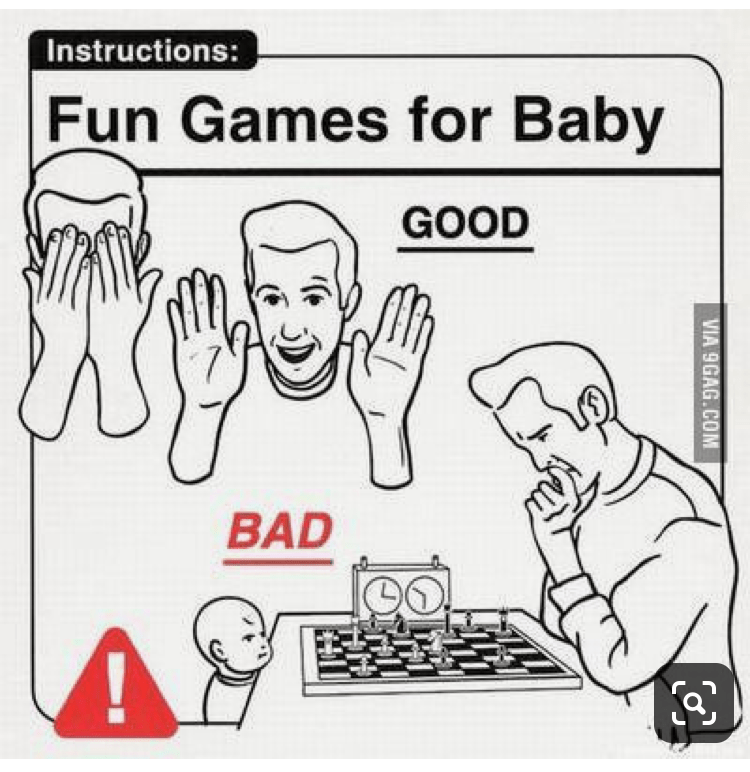 There are different options for how a child experiences a lack of relationship with his mother. In adolescents, for example, this is expressed in a consumer attitude towards parents or a substitutive attachment to peers, and not to mom and dad.
There are different options for how a child experiences a lack of relationship with his mother. In adolescents, for example, this is expressed in a consumer attitude towards parents or a substitutive attachment to peers, and not to mom and dad.
If we talk about little ones, then a three-year-old child, for example, can go to the hands of everyone in a row, smile in the hope that at least someone will pay attention to him. Some children generally withdraw into themselves, become isolated, they do not need anyone. Others, on the contrary, become anxious, literally cling to the skirt, hoping to get at least something from their mother. Like Bergman in the film "Autumn Sonata": the child is ready to sit under the door for a long time, waiting for his mother to pass by and look at him at least for a short time.
- What kind of adult will he then become?
- As adults, we often reproduce a model of relationships familiar from childhood or compensatory in relation to it. For example, when a child yearns for a parent's attention, they may create a relationship pattern in which they are ignored and abandoned. A child, forced in childhood to deserve the attention of adults by actions, jumps, achievements or something else, will continue to build relationships in this way, confident that they love only for achievements, and not for the fact of his existence in this world.
For example, when a child yearns for a parent's attention, they may create a relationship pattern in which they are ignored and abandoned. A child, forced in childhood to deserve the attention of adults by actions, jumps, achievements or something else, will continue to build relationships in this way, confident that they love only for achievements, and not for the fact of his existence in this world.
- A sad picture is obtained when such negative scenarios are laid down in childhood.
- By default, any adult will have a basic relationship model that they have received from their parents. But such a child, having become an adult, thank God, is not sentenced. He can always change his life scenario and abandon the parental one, provided he is aware of it and carries out deep inner work with himself.
At the same time, it is clear that there is no child in the world who has never felt that his mother is not enough for him. There are situations like this all the time. Mom can get sick, go to the store, when the child at that very moment really wants her by her side. This is normal to one degree or another. I, too, in my childhood, was waiting for my mother at the door.
There are situations like this all the time. Mom can get sick, go to the store, when the child at that very moment really wants her by her side. This is normal to one degree or another. I, too, in my childhood, was waiting for my mother at the door.
Much more important is what happens after the mother returns home. One mother is interested in washed dishes, clean floors and homework done, the other hugs the child, tells how she misses her, and they go to dinner together. Feel the difference? These are two different scenarios.
About education
— It turns out that by the time of motherhood, any mother (and not only a foster mother) must not only deal with her children's scenarios, but also learn new rules for raising children.
— This is important right now. Until recently, even at the time of our grandmothers, humanity lived in large families.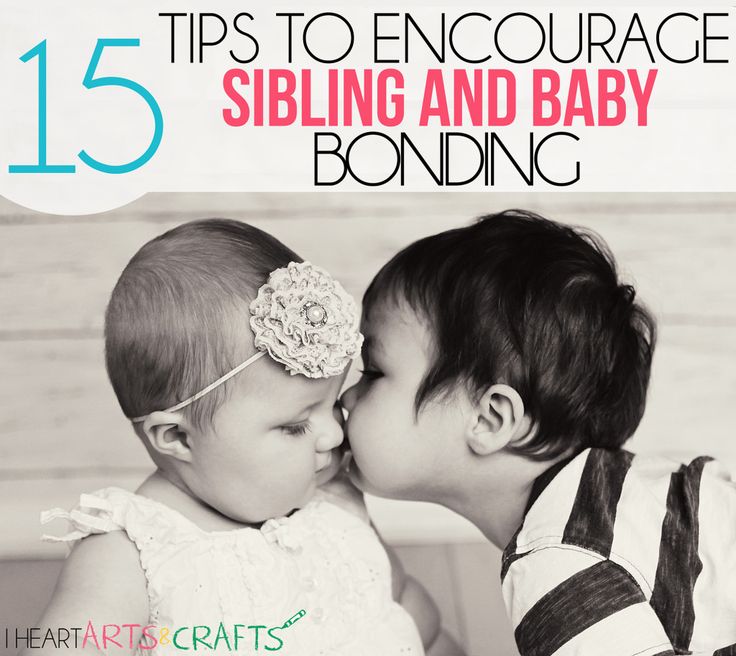 Then, in a situation of large families and close contacts with neighbors, any woman, by the time her first child appeared, had already gained experience in communicating with a dozen children of different ages and intuitively understood how to deal with a one-year-old, three-year-old, seven-year-old child. Now in cities it is not uncommon for a 35-year-old woman to pick up her first baby, her own child. Then it is better to read books in advance.
Then, in a situation of large families and close contacts with neighbors, any woman, by the time her first child appeared, had already gained experience in communicating with a dozen children of different ages and intuitively understood how to deal with a one-year-old, three-year-old, seven-year-old child. Now in cities it is not uncommon for a 35-year-old woman to pick up her first baby, her own child. Then it is better to read books in advance.
quote_block node/272929- There are thousands of parenting books on the market today, with different and sometimes conflicting theories. How to find the best option in them?
- It's very simple. If you feel like a bad mother after reading this book, don't read this book any further. If after reading you think your child is wonderful, and you yourself, as a mother, are fine, keep reading. The book either helps and becomes a mother's resource, or hits on the head. You don't have to hit your mother in the head.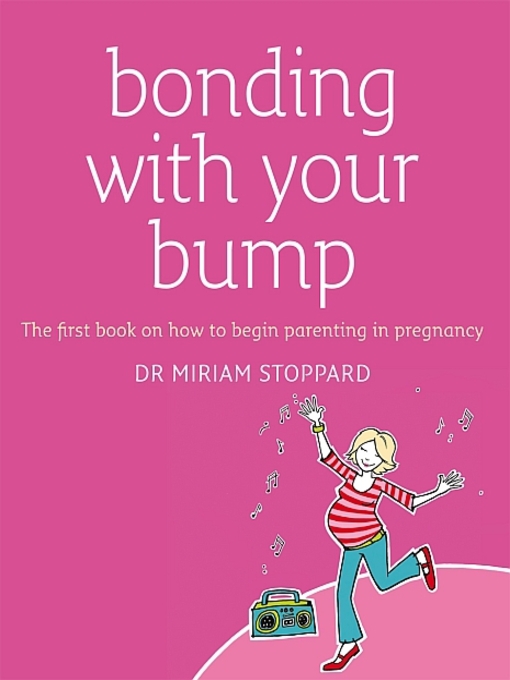
- What is the role of genes, especially in the case of an adopted child, in the child's future success? Many adoptive parents are afraid that the child will show genes, and then ...
— Genes play an important role, but not the most important. More important than genes is the experience of a child’s relationships in childhood: were they supported, did they help him understand and experience his feelings, did they help him to be in contact with his feelings, are there relationships that are dear to him, are there people for whom you can think about yourself, about your safety. Humans are not programmed robots. One may not have the best heredity and no inclinations for the exact sciences, but he will be brought up as a decent person and he will live a good life. And the other will grow up in a family of professors, try drugs, or at 19lie down on the sofa.
Do you know many family clans where there is not a single person, for example, a drinker or an unhealthy person? Personally, I don't know. Parents, on the one hand, are not the arbiters of fate and not the creators of genes, but on the other hand, they have the opportunity for proper upbringing.
Parents, on the one hand, are not the arbiters of fate and not the creators of genes, but on the other hand, they have the opportunity for proper upbringing.
About education
— How to proceed when choosing a school? Where is the line when a parent is obliged to give a good education, but also not to push the child to activities that are not interesting for him?
- You can lead a horse to water, but you can't make him drink. You can break into a cake, pay for an expensive English school for your child, and he will not study there. Parents create conditions to the best of their ability for the child to receive an education. Whether he uses it or not - this, by and large, the parents have the opportunity to influence.
- Many parents even do their homework for their children, as long as they stay in a decent school.
— If a child has a headache, he is tired, then doing homework for him is an ordinary family mutual help. But when they learn for a child and replace his desire to learn with his own desire, there is no point. After 18 years, he will no longer be afraid of parental punishment screams and lie down on the sofa. When parents "steam" more than a child, it means that they need a school or a university, and not a child. Isn't it easier then to do it yourself and get another diploma? At least they'll enjoy it.
But when they learn for a child and replace his desire to learn with his own desire, there is no point. After 18 years, he will no longer be afraid of parental punishment screams and lie down on the sofa. When parents "steam" more than a child, it means that they need a school or a university, and not a child. Isn't it easier then to do it yourself and get another diploma? At least they'll enjoy it.
— What is the most important thing when choosing a place of study for a child?
— It is important to understand that school is a service provided to a child. And it is important to take into account the atmosphere there, so that going to school becomes a conscious desire for the child, and not a daily feat. It is important that he goes there calmly and confidently. When getting an education becomes a pain, it's not worth it.
Of course, there will always be heroic personalities like Lomonosov who have learned under any conditions. But is our child obliged to be a heroic person? A child is primarily for parents, not for school. And if a parent believes that today it is more useful for a child to lie in bed, then it is the parent who decides, not the school.
But is our child obliged to be a heroic person? A child is primarily for parents, not for school. And if a parent believes that today it is more useful for a child to lie in bed, then it is the parent who decides, not the school.
My 15-year-old daughter has a very busy school schedule, and if I see that it is better for her to lie down and sleep, then I allow it. Sometimes I ask her, and she gladly agrees to rest, and sometimes I persuade her to rest. This is also an important skill for a child and for an adult - to realize that you have an overload and that you need to rest so as not to break loose.
- Are there mothers, especially working ones, who do not feel guilty?
— There are. The maternal instinct is manifested to varying degrees.
— So harmony in relationships with children is directly related to instinct?
- Depends on the characteristics of the child.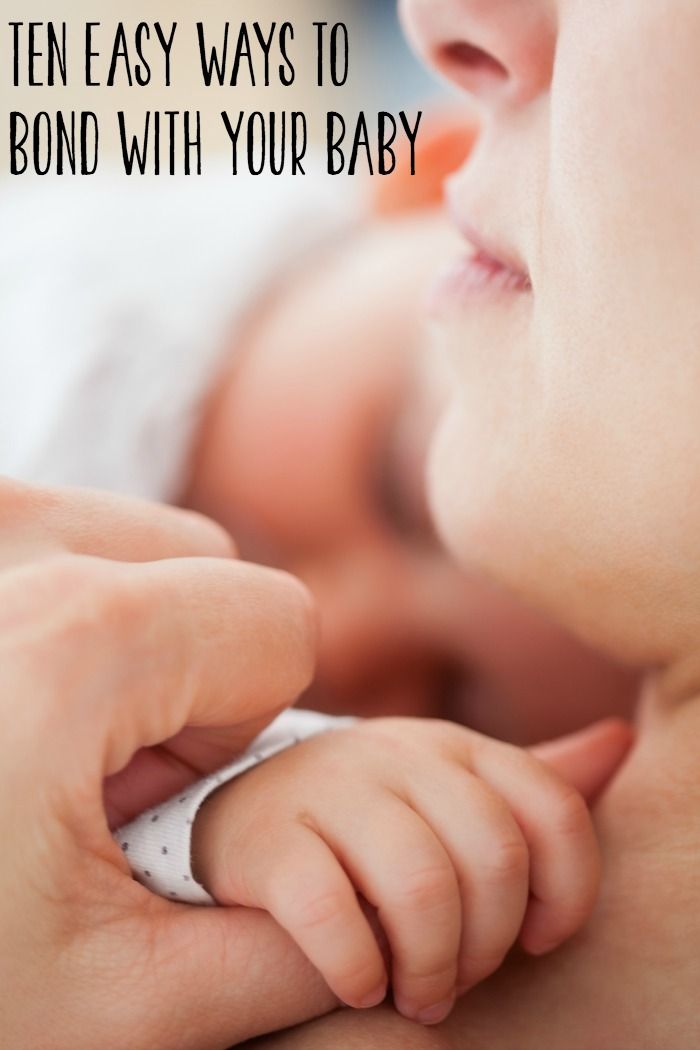 If he is no longer small, sitting with his beloved grandmother or dad, then why reproach yourself? If a person is very small, then any physical distance from him in space will be difficult. This is a mechanism laid down by nature to keep the mother close to the child, instinctive behavior. But if he is already 12, and you can’t spend a calm day without calling him ten times, or you don’t understand who will warm the soup for him, then this is probably too much.
If he is no longer small, sitting with his beloved grandmother or dad, then why reproach yourself? If a person is very small, then any physical distance from him in space will be difficult. This is a mechanism laid down by nature to keep the mother close to the child, instinctive behavior. But if he is already 12, and you can’t spend a calm day without calling him ten times, or you don’t understand who will warm the soup for him, then this is probably too much.
What causes a violation of attachment and how to prevent it in a relationship with a child
Source: LETIDOR
Let's look at what threatens a child to be deprived of a secure attachment with a significant adult.
Our regular author Diana Mashkova, writer, journalist, head of the “Enlightenment” direction of the Arithmetic of Good Foundation, mother of 4 children, 3 of which are adopted, has already told us about the correct hierarchy in the foster family, and about the stages of adaptation of the adoptive child in the family, and about relations with the blood relatives of the adopted child. In a new article, Diana explains the importance of maintaining attachment and the dangers of breaking it.
In a new article, Diana explains the importance of maintaining attachment and the dangers of breaking it.
A large number of modern adults - scientists say the figure is 45% - did not develop a reliable attachment to their parents in childhood. Unfortunately, this is not just a fact from their past. This is something that affects a person all his life: affects health, relationships with other people, resilience, self-confidence and many other issues.
People who are deprived of "secure attachment" in the first years of life often unconsciously reproduce the broken model in their own family, with their children, passing down the broken relationship code from generation to generation. Can this vicious circle be broken?
What is attachment? If we turn to the definition, this is a mutual process of forming emotional bonds between people that persist indefinitely, even if people are separated.
For adults, this is a useful thing that unites the closest people.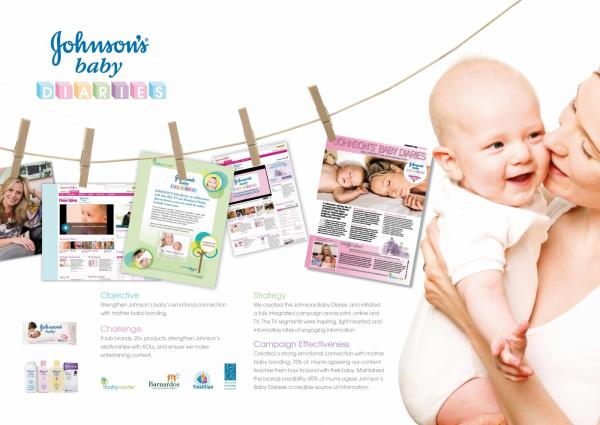 For children, it is a vital need and a vital necessity.
For children, it is a vital need and a vital necessity.
For an infant, a mother or a person who constantly replaces her is a natural source of food, warmth, security, comfort, joy and other emotions. The kid is not able to feed himself, or calm, or captivate. Therefore, the development of the child stops in loneliness, the subconscious setting turns on: “nobody needs me”, which is one of the reasons for the high infant mortality in institutions for orphans.
Attachment is not given to a child by the fact of birth, it develops gradually, in the daily interaction between an adult and a child.
The baby experiences a natural need - hunger, thirst, discomfort, which he cannot satisfy on his own, and therefore cries. A significant adult comes to the call - feeds, waters, changes diapers, and at the same time gently sentences, kisses and cuddles. Out of this healthy circle of relationships—the need, the call, the coming of the adult, the satisfaction of the need involved—is born the basis for development.
He learns to trust an adult who is reliable and not indifferent, and through trust in a loved one, trust in other people and in the whole world is born. A secure future is born.
An excellent basis for understanding the essence and mechanisms of attachment can be a book by the classic of developmental psychology by the outstanding English scientist John Bowlby. It's called "Attachment".
An even easier way to get acquainted with the basics is to read the book by the famous Russian psychologist Lyudmila Petranovskaya “Secret support. Attachment in a child's life.
The main thing is to realize that a healthy attachment instills in a child the ability to love, understand their own feelings and the feelings of others, control their emotional outbursts, learn and gain knowledge, think logically, have self-esteem and build relationships with other people. It protects against many psychosomatic diseases and reduces the risks of possible developmental delays.
This is the undeniable value of secure attachment in a child's life.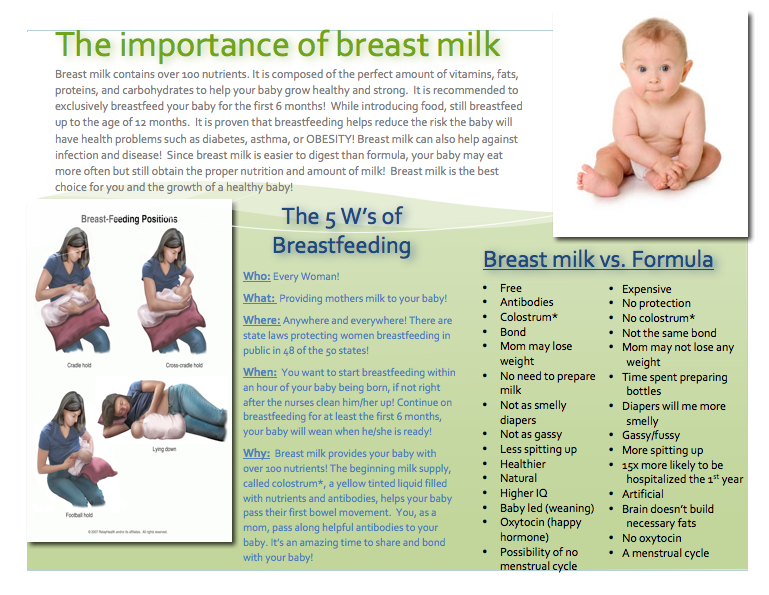
“From World War II onwards,” writes world-famous psychologist and therapist Nils Peter Rygaard in his book Attachment Disordered Children, “with acceleration into the 1960s, we undertook the largest social experiment ever was held in the western world: mothers of toddlers and preschool children went to work outside the home, away from their babies... The conditions for learning how to become human through relationships during early childhood were turned on their head. To date, we are probably the only mammalian species in which mother and infant do not remain inseparable for at least the first two to three years after birth."
In maternity hospitals, newborns begin to be separated from their mothers immediately after birth, supposedly giving the woman in labor time to recover, but in reality traumatizing both and causing anxiety, insecurity and guilt in women.
In the Soviet Union, babies are sent to a nursery from the age of four months, and sometimes even earlier, separated from their mothers despite the vital needs for breastfeeding, caress, tactile contact and love.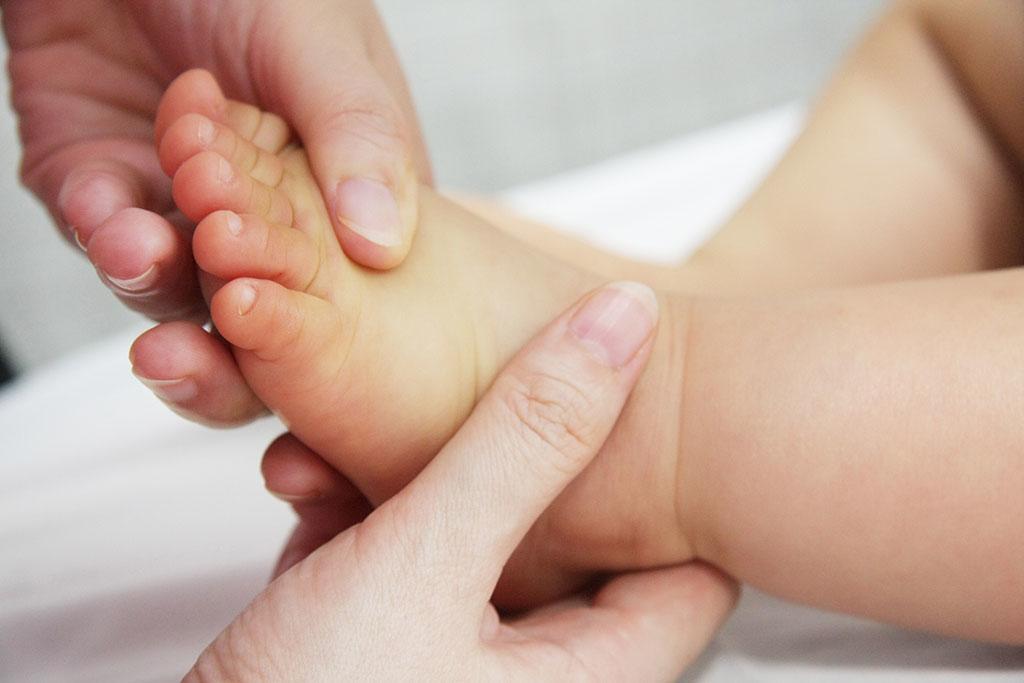 There are kindergartens - five days, which allow parents to work, arrange their personal lives and earn money, and doom children to severe experiences of loss and pain of separation.
There are kindergartens - five days, which allow parents to work, arrange their personal lives and earn money, and doom children to severe experiences of loss and pain of separation.
Deprivation, the inevitable and eternal companion of orphans in state institutions, suddenly seizes family children as well.
Parents are forbidden to take babies in their arms so that they “do not get used to”, they are ordered to feed them by the hour, and not on demand, they do not allow mothers to be with small children in hospitals and other “health” institutions.
Many of us today's adults have fallen victim to these rash actions. It is in them that the reason for those same 45% of people with insecure attachment.
An attachment disorder can manifest itself in many ways. Much depends on the individual characteristics of the child - his psychological structure, temperament, hardiness. What is quite easily tolerated by some children turns out to be a deep trauma for others.
The book "The Boy Who Was Raised Like a Dog" by the famous psychotherapist Bruce Perry tells the story of a teenage rapist, an antisocial type, whose cruel crimes horrify even specialists. But most of all - his own parents, who do not understand what is happening to their youngest son.
The older child grew up to be a fine boy, while the younger one turned out to be a criminal, although both were raised by the same parents.
How could this happen? Gradually, in the course of working with the family, the therapist gets to the bottom - it turns out that the youngest son developed a severe attachment disorder in infancy.
Immediately after his birth, the family moved to a new area, where my mother had no relatives, no friends, no support. Due to a slight mental retardation, she could not cope with two children at once, besides, the youngest turned out to be extremely restless and irritated the woman. She fed him in the morning, swaddled him and left him in the crib for the whole day, and she herself went for a walk with her eldest son.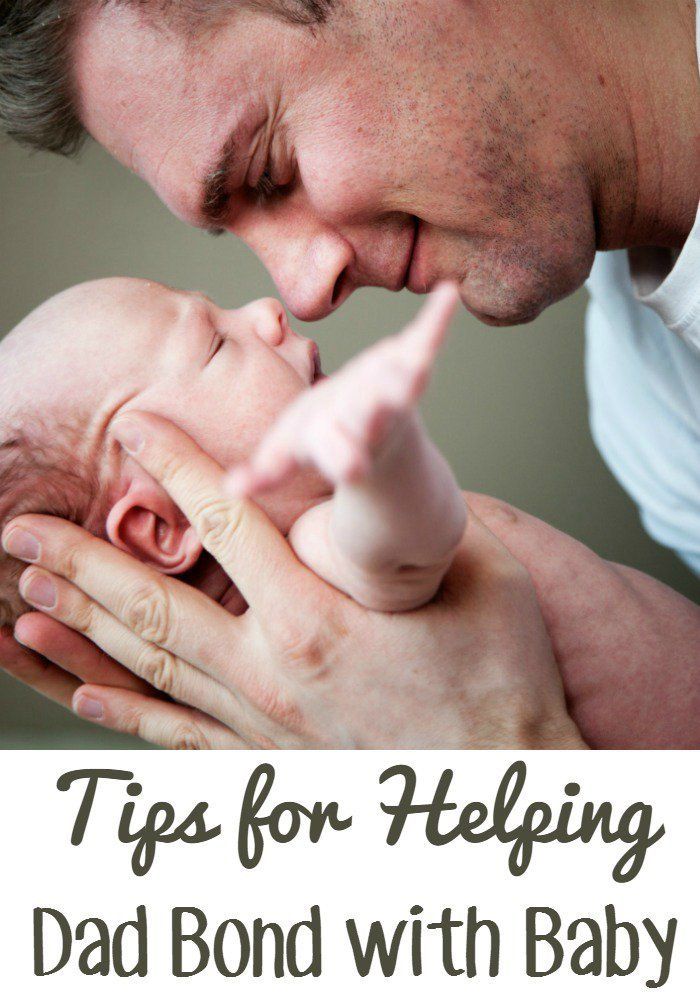 She returned only in the evening, when her husband came home from work.
She returned only in the evening, when her husband came home from work.
So the boy grew up - in a family, but without a mother, who had no one to replace. And all further violations started in that period of life, which he did not even remember.
If a less sensitive child were in this guy's place, he could get out of the situation differently, he could get the love of close adults at an older age. But it was for this child that neglect of needs had fatal consequences.
There are no common "event-consequence" schemes for all. There is a unique set of impairments and injuries that lead to unpredictable outcomes.
One child may show aggression, another may have depression, a third may have a psychosomatic illness, a fourth may have suicidal tendencies, a fifth may be unsociable, a sixth may have extremely low self-esteem, a seventh may lack empathy, and so on. And for someone - all at once. This is impossible to predict.
Therefore, for comparison, I will just give one more real example.
Saniya Ispergenova was brought up in an orphanage from birth to the age of 18. In her book “I am Sania. The Story of an Orphan, published with the support of the Arithmetic of Kindness charity foundation, traces the influence of deprivation and attachment violations on the entire path of becoming a person.
The girl talks about health disorders (nervous enuresis, multiple pneumonias and bronchitis in childhood), about a terrible fear of people, about sensory deprivation, about social deprivation, about the inability to build close relationships, about the lack of empathy and much more.
“Haptic contact was the most difficult for me ,” she shares with readers. - I got used to every fleeting touch for a long time, entered into relationships, as if into cold water. She moved forward in small, barely perceptible steps.
After life without a mother, without a family, it was difficult to learn hugs, kisses, touches - all this seemed too complicated a science.
Lack of attention and care in childhood interfered with the formation of emotional intelligence.
“Then it never occurred to me,” says Sania, “that inside an adult, his own emotions are seething. Who and when spoke to us about feelings? Who taught to recognize joy or sadness, fun or despair, pleasure or pain? There was nothing. I could not name my own experiences and, like a blind man, did not pay attention to the feelings of others. The people around me never seemed upset or, conversely, happy. Frightened or, conversely, calm. To be honest, I didn't care about them at all. Years of inattention to my own feelings returned in adolescence as a boomerang of indifference.
Sanya's story is a prime example of a serious attachment disorder. And yet he is life-affirming: Sania proves to readers that a person is able to change his future. The main thing is not to give up, to wish for change and look for support in life.
What helps to cope with the consequences of attachment disorders?
Of course, the first step is to discover the problem and become aware of it. Do not write off all the difficulties of relations with the child on children's whims, "bad" heredity or bad character, but try to understand the essence of what is happening.
Do not write off all the difficulties of relations with the child on children's whims, "bad" heredity or bad character, but try to understand the essence of what is happening.
Parents themselves are often the first people to see problems. In the case of orphans, adoptive parents.
And then the main task is to build a trusting and warm relationship with the child. At any price. It is on this - not on study, circles or sports - that all efforts in the family should be directed. Just to build a bond.
Specialists working with cases of such a disorder confirm that the efforts of parents are primary, and the efforts of psychologists and psychotherapists for success are secondary. A trusting relationship with a significant adult is precisely the foundation on which the whole life of a child is built: it develops, talents are revealed, and physical and mental health is formed.
It is important to do everything possible and impossible to ensure that every child has a reliable and loving adult.